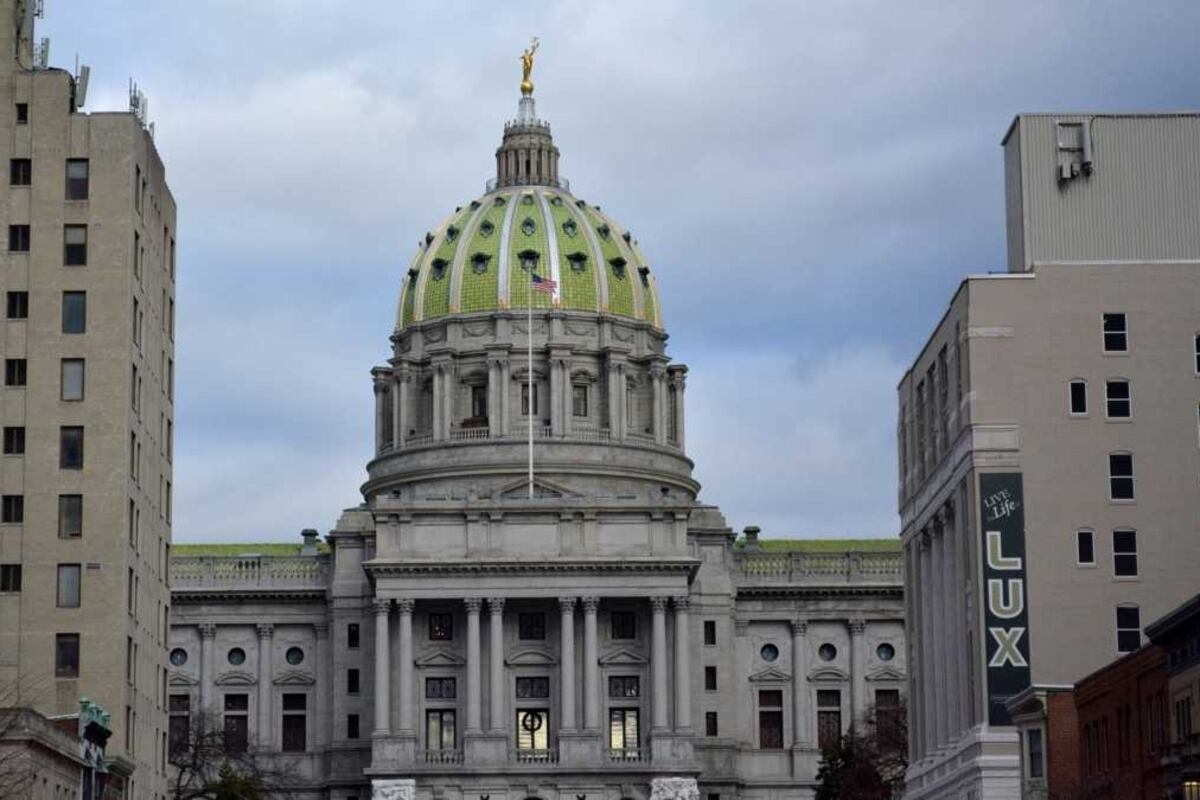Pennsylvania Gov. Tom Wolf and the General Assembly have reached a budget agreement that increases funding for education but mostly leaves unspent a $3 billion state surplus and much of the $7 billion in federal pandemic aid.
Advocacy groups that had urged Harrisburg to use the money now decried the deal, which was disclosed Friday morning and passed both houses in a late-night session. Those groups had hoped to spend those extra funds to make a major dent in school funding inequity and shore up other social services. Among the states, Pennsylvania has one of the largest spending gaps between better-off and low-income districts. And the state’s share of total education spending, at 38%, is in the bottom five nationwide, which puts more of the funding burden on local districts and exacerbates the gulf between rich and poor.
“This was a missed opportunity,” said Donna Cooper, executive director of Public Citizens for Children and Youth, or PCCY. “This was a once in a lifetime shot to actually make an extraordinary down payment on solving Pennsylvania’s nationally embarrassing inequity in school funding. Instead, they put the money in reserves. They didn’t need a tax increase to solve school funding inequity, but they walked away from it.”
According to the deal made between Republican legislative leaders and members of Gov. Wolf’s staff, state basic education funding will increase by $200 million, bringing the total to $7 billion. In addition, the budget includes an additional $100 million to be distributed among the 100 poorest districts, which Cooper and others said was a small but significant victory.
Called “Level Up,” that proposal came from a coalition of equity-focused groups that recognized a full overhaul of the state’s education funding system, as Wolf had originally called for in his budget, was unlikely.
“It supercharges the formula for the poorest districts,” said Cooper, policy chief for former Democratic Gov. Ed Rendell.
Advocates sought to make the “Level Up” supplement permanent by writing it into the school code, but that did not happen. Instead, the additional amount will be added to the base school aid for the 100 poorest districts.
“While only a one-time measure, by approving this supplement, the state legislature has finally acknowledged the widening gaps and the profound shortchanging of students that remains the norm in the state’s lowest-wealth school districts,” said a statement from Deborah Gordon Klehr, executive director of the Education Law Center.
The law center represents several districts, parents, and civil rights groups claiming the state funding system is unconstitutional and should be overturned. Commonwealth Court will begin hearing arguments on Sept. 9.
The proposed $40.8 billion state budget, a 2.5% year-over-year spending increase, puts most of the state surplus into a rainy day fund and spends $2.5 billion of the $7 billion in American Rescue Plan funds, all of which must be used by the end of 2024.
According to Cooper, the basic aid increase and Level Up dollars will bring $80 million in additional funds to Philadelphia.
On Wednesday, a group of religious leaders and City Council member Helen Gym were detained after they blocked the door of the Senate gallery in an act of civil disobedience against Republican priorities. The protesters urged legislators to “spend the money” on education aid and other social services.
Sen. Vincent Hughes, a Philadelphia Democrat who spoke at a rally before the protest, said that budget makes some progress, citing the Level Up funds “that reflect an attempt to get to education equity” among other provisions, including $30 million devoted to a new community violence program.
But, he added, “with an unprecedented $7 billion in unspent budget surplus and American Rescue Plan funds...this fight is not over.”
Speakers at the rally, and in chants and songs as they walked through the capitol building, called the persistence of education funding gaps in Pennsylvania unconscionable. “They sit on a $10 billion surplus while our children live in poverty,” Gym shouted as she was led away during her arrest. “Shame on the state.”
Jerry Jordan, president of the Philadelphia Federation of Teachers, on Friday called the budget agreement “shameful, perpetuating a “deeply racist funding system that shortchanges predominantly Black and brown students.”
In his budget proposed in February, Gov. Wolf had sought a $1.35 billion increase in basic education funds. He also proposed that the entire $7 billion in basic education aid be driven through a fair education funding formula, approved by the legislature but never fully implemented, that weights district and student needs based on such factors as poverty, student needs, and taxing capacity.
Wolf’s proposal, which he initially wanted to pay for with a tax increase, included enough money so that no district would lose funds under the aid redistribution. But Republicans were never on board, even when the American Rescue Plan funds made it possible to maintain funding in all districts while boosting it for others, thanks to the redistribution — and without a tax increase.
“We struck a balance between making some targeted investments in our budget to help the economy recover,” House Speaker Bryan Cutler, Republican from Lancaster County, told reporters Friday morning.
Also included in the budget is a $50 million increase for special education and a $30 million increase for pre-kindergarten programs.





